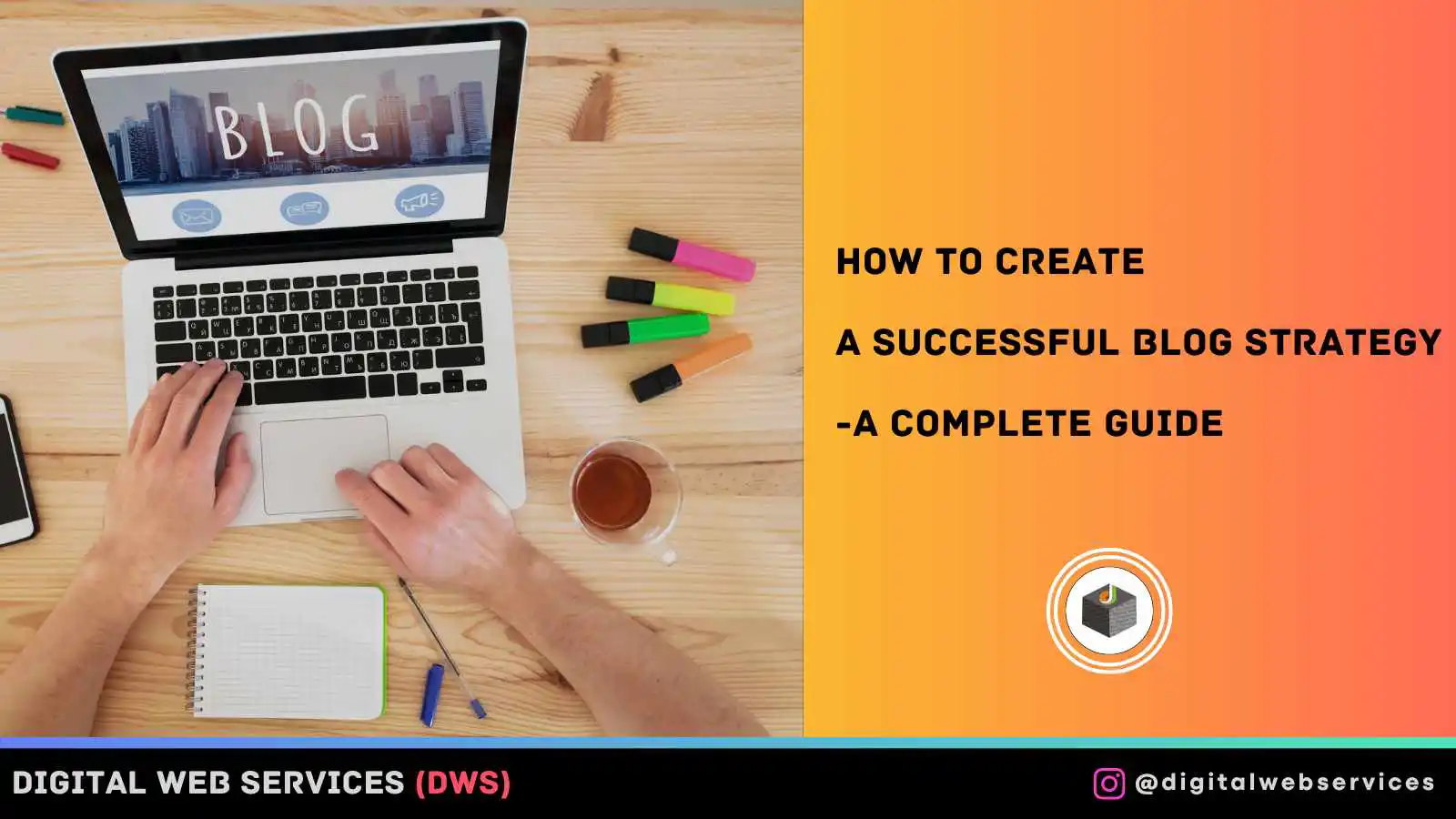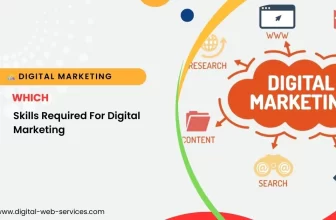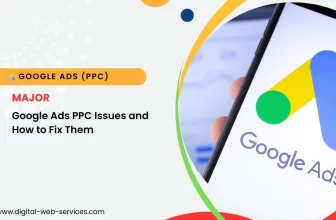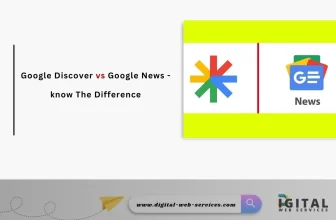
A blog strategy is essential for any business or individual looking to maximize the impact their blog posts have on their target audience.
Creating an all-including blog strategy can boost the effectiveness of blogs, from limiting topics to deciding on the frequency, length, and tone of each post.
A successful blog strategy should also identify ways to promote and share blogs, such as through SEO techniques, social media, and other digital platforms.
Being mindful of these aspects will ensure that your blog has the maximum reach potential. Your blog can be invaluable in building recognition, reputation, trust, and customer base.
Step By Step Guide To Creating a Blog Strategy
Are you looking for ways to make your blog more successful? Creating a winning blog strategy can be easy.
With the proper steps, you can easily create an effective plan for your blog that will help you reach more readers and grow your overall success.
Let’s look at eight essential steps for creating a successful blog strategy.
Identify Your Goals
Identifying your goals when starting a blog is essential for creating an actionable and successful strategy.
Knowing what you want to achieve will help guide your decisions throughout the process, from which platform to use to how much time you are willing to dedicate each day.
Clear objectives will ensure that all your energy and effort will focus on hitting those targets. You may even involve people who can advise you on achieving your goals and offer support and feedback as progress is made.
Setting realistic expectations and keeping track of your progress can play an essential role in helping you create a successful blog strategy.
Know Your Audience
Crafting a successful blog strategy begins with understanding your audience. Knowing who your target reader allows you to tailor content and ensure the blog is reaching the right people.
The more specific information you can gather about your reader, the better. Consider their age, gender, education level, and interests when creating content.
When you know your audience, you can craft content targeting their pain points. This way, you can highlight the effectiveness of your product by giving them solutions to their problems. Suppose you need to be more skilled with writing; in that case, you can outsource your SEO content writing or try to learn to do it from the experts.
Understanding what will resonate with them gives you an edge in engaging readers effectively and connecting with them in meaningful ways, so take advantage of this critical step!
Choose Topics
Choosing engaging topics is key to this strategy. Depending on what kind of blog you are running, appropriate cases will differ significantly. However, one thing stays the same – the efficiency with which you can attract and maintain readers’ interest depends upon your choice of topic.
You can look at your target audience’s questions and create content that addresses those questions. You can also check what topics are being covered by your competitors and try to find a unique angle or take on the topic.
Therefore, it is essential to think about topics that further your blog’s purpose. It is to inform, educate or entertain – and make sure they are timely and relevant for your target audience.
The more focused your magazine topics are on relevance and timeliness, the better chances you have at creating a successful blog presence.
It’s crucial to take courage and try different things. Be bold, think outside the box, and develop creative and unique topics to make your content stand out. Try various topics and measure the performance of your content to see what resonates with your audience, and refine your approach accordingly.
Set a Schedule
Creating an effective strategy for your blog requires careful planning and a good dose of discipline. Setting a schedule is one of the most important steps to ensure your blog is successful.
With a schedule in place, you can ensure that your blog grows organically and consistently. This can be achieved by publishing posts regularly. Taking the time to set up an organized framework should result in more efficient blogging and allow for easier management and implementation of ideas.
Dedicate yourself to a consistent posting routine if you want to support your blog’s growth in meaningful ways.
changes if necessary. For example, if a breaking news story or trending topic arises, don’t hesitate to adjust your schedule to take advantage of the opportunity. And when you’re getting too overwhelmed, it’s essential to take a break from creating content from time to time. Give yourself time to refresh your ideas and come back with new energy.
Promote Your Content
Proactively promoting content is essential to build visibility and authority in your niche. Without promoting your posts, it won’t be easy to drive traffic to them. Similarly, your blog won’t reach its full potential.
Researching target audiences, building relationships with influencers, targeting keywords, and using social media are powerful tactics. You can leverage this to increase awareness of your blog and boost its chances of success.
Doing so will reward you with more influential followers and higher visitor numbers.
Track Performance
Tracking performance can help determine which techniques are successful and which require adjustment for better results.
Monitoring data through click-throughs, comments, and viewership can answer questions about topics, titles, content format, and other considerations related to the blog strategy.
Knowing how well the posts perform will allow for any necessary changes or improvements to ensure tremendous success. Ultimately, tracking performance is fundamental in creating a successful blog approach.
Measure Impact
One of the critical factors in achieving success is measuring impact. You need to speculate which parts of your blog are performing well, which topics generate the most organic traffic, or which posts get the maximum comments.
This can provide invaluable insight into what readers find interesting, enabling you to focus on topics that resonate with your audience.
Additionally, measuring success can continue beyond tracking organic traffic. Other metrics, such as website conversions or social shares, can help assess how effectively your blog connects with potential customers.
Time taken to measure your blog posts’ impact will improve their effectiveness and empower your business for new markets successfully.
Monitor Trends
Keeping track of current events, popular topics, and other pertinent information can give you a better insight into what readers are interested in.
This could be helpful, especially when roping in ideas related to many industries or needing to keep abreast of the technology. Being informed of the trends will help you create the types of content. Further, it will help you in formatting strategies for your blog posts.
Staying on top of trends is an effective way to stay ahead of the curve and keep your blog up-to-date with the latest developments in your industry.
Conclusion
The key takeaway is that having an effective blog strategy requires careful planning coupled with regular tracking and analysis along the way.
So make sure that all eight steps mentioned above are followed diligently. Achieving it will help moving forward if success is aimed here!
With these eight simple steps outlined above are taken care of properly. Bloggers should be well-equipped to plan a blog and create a successful long-term blogging strategy. They are explicitly tailored towards their own needs & objectives today – good luck & happy blogging, folks.
Digital Web Services (DWS) is a leading IT company specializing in Software Development, Web Application Development, Website Designing, and Digital Marketing. Here are providing all kinds of services and solutions for the digital transformation of any business and website.










